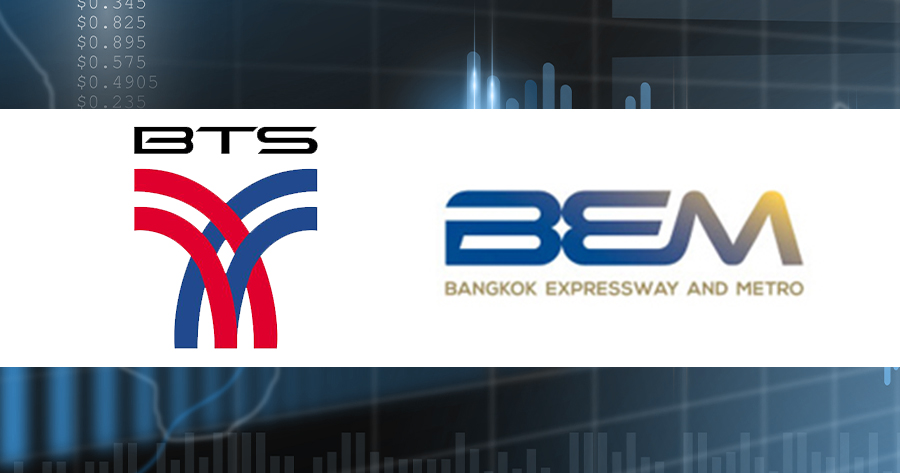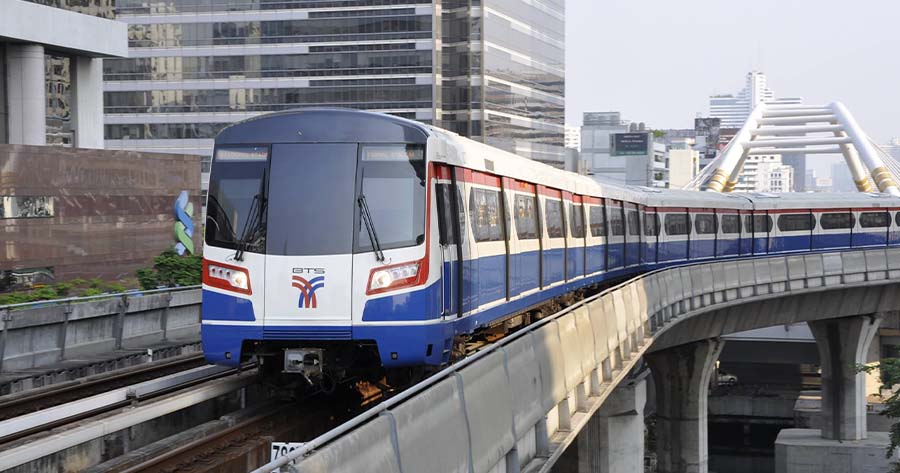The Thai Cabinet has approved the rollout of a 20-baht flat fare for all mass transit lines in Bangkok, effective from October 1, 2025. This policy will be exclusive to Thai citizens, requiring an identity verification registration process beginning in August this year.
According to Krungsri Securities, the move is a positive development for Bangkok Expressway and Metro Public Company Limited (SET: BEM) and BTS Group Holdings Public Company Limited (SET: BTS), though the implementation is contingent upon amendments to two key laws: the first relating to the Mass Rapid Transit Authority of Thailand (MRTA), and the second concerning the common ticketing system.
Should these amendments be passed and gain Cabinet approval before October 1, 2025, both BEM and BTS stand to benefit.
Transport Minister Suriya Jungrungreangkit clarified that funding for the 20-baht fare initiative will come from MRTA’s retained earnings and cash flows, with a government subsidy budgeted at THB 16 billion over two years (THB 8 billion annually).
Krungsri’s analysis indicates that, based on current ridership, only THB 4 billion annually would be needed to subsidize BEM and BTS operations, meaning the THB 8 billion allocation anticipates a potential doubling of passenger volumes across all lines.
This budget provision suggests the government may also cover additional fare shortfalls should ridership increase.
BEM generates approximately THB 4.4 billion annually in 2024 from its Blue Line, with average daily ridership of 443,000 and an average fare of THB 27 per trip. Should ridership remain stable, the government would subsidize BEM by around THB 1.1 billion to compensate for the fare difference between average fare of THB 27 and subsidized THB 20 fare.
BTS will benefit across four lines eligible for this subsidy: the Core Green Line (under BTSGIF), the Pink Line, Yellow Line, and Gold Line (also belongs to BTSGIF). The Core Green Line, with average daily ridership of 583,000 and average fare of THB 33 per trip, earns roughly THB 7 billion annually.
Subsidies for BTSGIF are projected at THB 2.7 billion, with a further THB 280 million for the Pink and Yellow Lines combined, bringing the total BTS subsidy to around THB 3 billion per year.
A 10% increase in ridership would boost BEM’s profit by about 9%, providing a positive earnings impact from late September 2025, when the new fare policy takes effect, with the full benefit realized from 2026 onwards.
For BTS, the impact will be even more pronounced, as its profits are projected to be lower in 2026 and 2027. Every 10% rise in ridership for the Core Green, Pink, and Yellow Lines is estimated to result in an 86% profit increase in 2026 and a 30% increase in 2027.
Analysts foresee that, over the long run, concession buybacks could replace direct fare subsidies. The greatest challenge lies in the complexity of repurchasing concession contracts from private operators, with an estimated budget of THB 500 billion previously cited during the last 20-baht fare campaign.
Research suggests this budget would suffice to cover only civil engineering and E&M (Electro-Mechanical and Electronic) system concessions.
BTS is expected to benefit more from the buyback policy, as its Pink and Yellow Lines are projected to generate losses of up to THB 1.6 billion this year. Selling these lines back to the state would restore BTS’s profitability and could prompt a recovery in its share price following sharp price corrections this year.
BTS is currently trading at an inexpensive 1.2x PBV (-2SD of the historical average).
BEM is not expected to be negatively affected, but a revaluation of the Blue Line and potential prolonged negotiations could introduce some uncertainty.
Analysts maintain that the 20-baht fare subsidy policy is set to benefit both BEM and BTS by stimulating increased rail usage due to more accessible cost. The full benefits of higher ridership will positively impact both firms’ bottom line.
Krungsri Securities recommends “Buy” BEM with a target price of THB 9.10, and BTS with a target price of THB 6.49, expressing a stronger preference for BTS due to its greater incremental profit from subsidies and undervalued share price.
Despite the negative overhang on BTS from the indefinite delay of the Entertainment Complex bill, analysts believe the share price has already accounted for this risk after significant declines in recent months.





